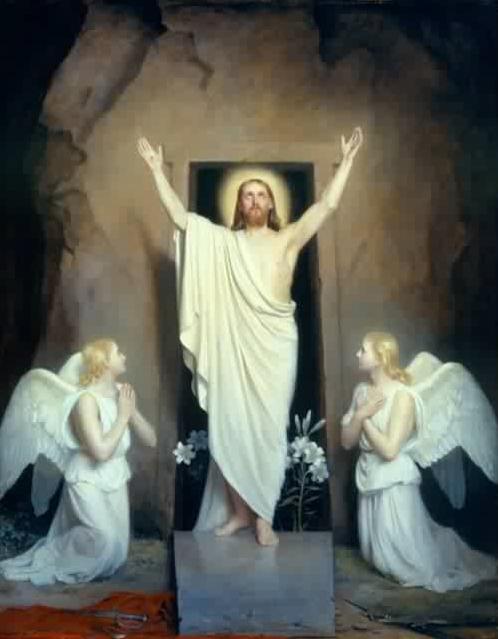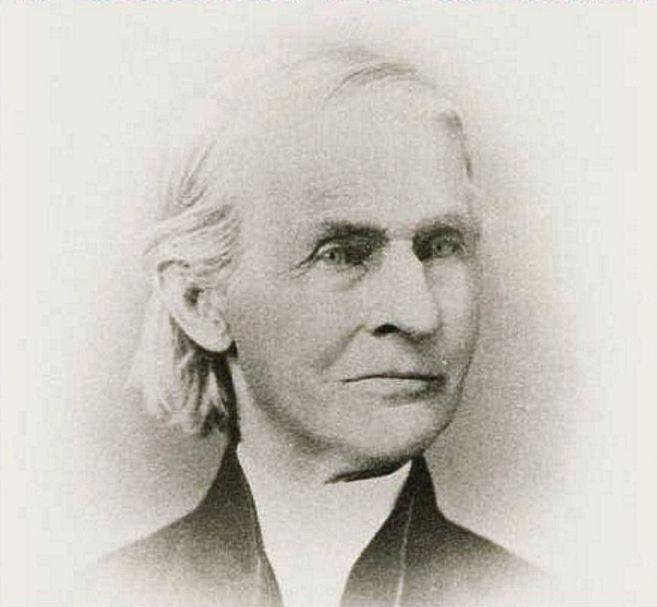|
Kersey Graves
Kersey Graves (November 21, 1813 – September 4, 1883) was a skeptic, atheist, rationalist, spiritualist, reformist writer, who was popular on the American freethought circuit of the late 19th century. Life Graves was born in Brownsville, Pennsylvania. His parents were Quakers, and as a young man he followed them in their observance, later moving to the Hicksite wing of Quakerism. According to one source, Graves did not attend school for more than three or four months in his life, but another source says that he received an "academical education", and at the age of 19 was teaching in a school at Richmond, a career he was to follow for more than twenty years. He was an advocate of Abolitionism, also interested in language reform, and became involved with a number of radical freethinkers within Quakerism. In August 1844, he joined a group of about fifty utopian settlers in Wayne County, Indiana. In the same month, he was disowned by his Quaker meeting group due to his neglect o ... [...More Info...] [...Related Items...] OR: [Wikipedia] [Google] [Baidu] |
Brownsville, Pennsylvania
Brownsville is a borough (Pennsylvania), borough in Fayette County, Pennsylvania, United States, first settled in 1785 as the site of a trading post a few years after the Sullivan Expedition, defeat of the Iroquois enabled a post-Revolutionary war resumption of westward migration. The Trading Post soon became a tavern and Inn, and was soon receiving emigrants heading west as it was located above the cut bank overlooking first ford that could be reached to those descending from the Mountains. Brownsville is located south of Pittsburgh along the east bank of the Monongahela River. According to the United States Census Bureau, the borough of Brownsville, located as a county (Pennsylvania), county border town has a total area of , of which is land and , or 10.47%, is water—most of which is the Fayette County, Pennsylvania, Fayette County half of the Monongahela River between the community and the flatter lands of opposite shore West Brownsville, PA, West Brownsville in Washingto ... [...More Info...] [...Related Items...] OR: [Wikipedia] [Google] [Baidu] |
Wayne County, Indiana
Wayne County is a county located in east central Indiana, United States, on the border with Ohio. As of the 2010 census, the population was 68,917. The county seat is Richmond. Wayne County comprises the Richmond, IN Micropolitan Statistical Area. Richmond hosts Earlham College, a small private liberal arts college. History The first permanent European-American settlers in the area were Quakers from North Carolina. They settled about 1806 near the east fork of the Whitewater River, an area including what is today the city of Richmond. Jeptha Turner, the first white child in the county, was born here in 1806. Wayne County was formed in 1811 from portions of Clark and Dearborn counties. It was named for Gen. "Mad" Anthony Wayne, who was an officer during the Revolutionary War. Wayne is mainly remembered for his service in the 1790s in the Northwest Indian War, which included many actions in Indiana and Ohio. The first county seat was Salisbury, Indiana, a town which no l ... [...More Info...] [...Related Items...] OR: [Wikipedia] [Google] [Baidu] |
Richard Carrier
Richard Cevantis Carrier (born December 1, 1969) is an American historian, author, and activist, whose work focuses on empiricism, atheism, and the historicity of Jesus. A long-time contributor to skeptical web sites, including The Secular Web and Freethought Blogs, Carrier has published a number of books and articles on philosophy and religion in classical antiquity, discussing the development of early Christianity from a skeptical viewpoint, and concerning religion and morality in the modern world. He has publicly debated a number of scholars on the historical basis of the Bible and Christianity. He is a prominent advocate of the theory that Jesus did not exist, which he has argued in a number of his works. Carrier's methodology and conclusions in this field have proven controversial and unconvincing to most ancient historians,Gathercole, Simon. "The Historical and Human Existence of Jesus in Paul’s Letters." Journal for the Study of the Historical Jesus 16.2–3 (2018): ... [...More Info...] [...Related Items...] OR: [Wikipedia] [Google] [Baidu] |
Acharya S
Dorothy Milne Murdock (March 27, 1960 – December 25, 2015), better known by her pen names Acharya S and D. M. Murdock, was an American writer supporting the Christ myth theory that Jesus never existed as a historical person, but was rather a mingling of various pre-Christian myths, Sun deities and dying-and-rising deities. She wrote and operated a website focused on history, religion and spirituality, and astro-theology. She asserted the pre-Christian religious civilizations understood their myths as allegorical, but Christians obliterated evidence by destroying or suppressing literature after they attained control of the Roman Empire, leading to widespread illiteracy in the ancient world, ensuring the mythical nature of Christ's story was hidden. She argued the Christian canon, as well as its important figures, were based on Roman, Greek, Egyptian, and other cultures' myths. Her theories are overwhelmingly rejected by mainstream historians, textual critics, and archaeol ... [...More Info...] [...Related Items...] OR: [Wikipedia] [Google] [Baidu] |
Dorothy M
Dorothy may refer to: *Dorothy (given name), a list of people with that name. Arts and entertainment Characters *Dorothy Gale, protagonist of ''The Wonderful Wizard of Oz'' by L. Frank Baum * Ace (''Doctor Who'') or Dorothy, a character played by Sophie Aldred in ''Doctor Who'' *Dorothy, a goldfish on ''Sesame Street'' owned by Elmo *Dorothy the Dinosaur, a costumed green dinosaur who appears with ''The Wiggles'' * Dorothy (''MÄR''), a main character in ''MÄR'' *Dorothy Baxter, a main character on ''Hazel'' *Dorothy "Dottie" Turner, main character of ''Servant'' *Dorothy Michaels, Dustin Hoffman's character the movie ''Tootsie'' Film and television * ''Dorothy'' (TV series), 1979 American TV series *Dorothy Mills, a 2008 French movie, sometimes titled simply ''Dorothy'' *DOROTHY, a device used to study tornadoes in the movie ''Twister'' Music *Dorothy (band), a Los Angeles-based rock band *Dorothy, the title of an Old English dance and folk song by Seymour Smith *"Dor ... [...More Info...] [...Related Items...] OR: [Wikipedia] [Google] [Baidu] |
Christ Myth Theory
The Christ myth theory, also known as the Jesus myth theory, Jesus mythicism, or the Jesus ahistoricity theory, is the view that "the story of Jesus is a piece of mythology", possessing no "substantial claims to historical fact". Alternatively, in terms given by Bart Ehrman paraphrasing Earl Doherty, "the historical Jesus did not exist. Or if he did, he had virtually nothing to do with the founding of Christianity." In contrast, the mainstream scholarly consensus holds that Jesus was a historical figure who lived in 1st-century Roman Judea, and that he was baptized and was crucified. Beyond that, mainstream scholars have no consensus about the historicity of the other major details of the gospel stories, or on the extent to which the Pauline epistles and the gospels replaced the historical human Jesus with a religious narrative of a supernatural "Christ of faith". Mythicism "goes back to Enlightenment times, when the historical-critical study of the past was born," and wa ... [...More Info...] [...Related Items...] OR: [Wikipedia] [Google] [Baidu] |
Atheists
Atheism, in the broadest sense, is an absence of belief in the existence of deities. Less broadly, atheism is a rejection of the belief that any deities exist. In an even narrower sense, atheism is specifically the position that there no deities. Atheism is contrasted with theism, which in its most general form is the belief that at least one deity exists. The first individuals to identify themselves as atheists lived in the 18th century during the Age of Enlightenment. The French Revolution, noted for its "unprecedented atheism", witnessed the first significant political movement in history to advocate for the supremacy of human reason.Extract of page 22 In 1967, Albania declared itself the first official atheist coun ... [...More Info...] [...Related Items...] OR: [Wikipedia] [Google] [Baidu] |
Quietism (Christian Philosophy)
Quietism is the name given (especially in Roman Catholic theology) to a set of contemplative practices that rose in popularity in France, Italy, and Spain during the late 1670s and 1680s, particularly associated with the writings of the Spanish mystic Miguel de Molinos (and subsequently François Malaval and Madame Guyon), and which were condemned as heresy by Pope Innocent XI in the papal bull ''Coelestis Pastor'' of 1687. The "Quietist" heresy was seen by critics to consist of wrongly elevating "contemplation" over "meditation", intellectual stillness over vocal prayer, and interior passivity over pious action in an account of Christian contemplation, mystical prayer, spiritual growth and Henosis, union with God (one in which, the accusation ran, there existed the possibility of achieving a sinless state and union with the Godhead (Christianity), Christian Godhead). Usage Since the late seventeenth century, "Quietism" has functioned (especially within Roman Catholic theology, ... [...More Info...] [...Related Items...] OR: [Wikipedia] [Google] [Baidu] |
Inner Light
The inward light, Light of God, Light of Christ, Christ within, That of God, Spirit of God within us, Light within, and inner light are related phrases commonly used within the Religious Society of Friends (Quakers) as metaphors for Christ's light shining on or in them. It was propagated by the founder of the Quaker movement, George Fox, who "preached faith in and reliance on 'inward light' (the presence of Christ in the heart)". The first Quakers were known to sit in silence and meditate on the words of the Bible until they felt the inward light of God shining upon them and the Holy Spirit speaking. Early Quakers taught: "God reveals Himself within each individual's conscience and consciousness by the Holy Spirit, Christ Himself being the Light to illumine man's sinfulness and lead in the way of truth and righteousness. ... this light is in all men by the grace of God to lead them to Christ, and that the same light will give daily guidance to the Christian." ''The Key to the Fa ... [...More Info...] [...Related Items...] OR: [Wikipedia] [Google] [Baidu] |
Quaker
Quakers are people who belong to a historically Protestant Christian set of Christian denomination, denominations known formally as the Religious Society of Friends. Members of these movements ("theFriends") are generally united by a belief in each human's ability to experience Inward light, the light within or see "that of God in every one". Some profess a priesthood of all believers inspired by the First Epistle of Peter. They include those with evangelicalism, evangelical, Holiness movement, holiness, Mainline Protestant, liberal, and Conservative Friends, traditional Quaker understandings of Christianity. There are also Nontheist Quakers, whose spiritual practice does not rely on the existence of God. To differing extents, the Friends avoid creeds and Hierarchical structure, hierarchical structures. In 2017, there were an estimated 377,557 adult Quakers, 49% of them in Africa. Some 89% of Quakers worldwide belong to ''evangelical'' and ''programmed'' branches that hold ... [...More Info...] [...Related Items...] OR: [Wikipedia] [Google] [Baidu] |
Progressive Friends
The Progressive Friends, also known as the Congregational Friends and the Friends of Human Progress, was a loose-knit group of dissidents who left the Elias Hicks, Hicksite branch of the Society of Friends (Quakers) in the mid-nineteenth century. The separation was caused by the determination of some Quakers to participate in the social reform movements of the day despite efforts by leading Quaker bodies to dissuade them from mixing with non-Quakers. These reformers were drawn especially to organizations that opposed slavery, but also to those that campaigned for women's rights. The new organizations were structured according to congregationalist polity, a type of organization that gives a large degree of autonomy to local congregations. They were organized on a local and regional basis without the presence of a national organization. They did not see themselves as creators of a new religious sect but of a reform movement that was open to people of all religious beliefs. Background ... [...More Info...] [...Related Items...] OR: [Wikipedia] [Google] [Baidu] |



